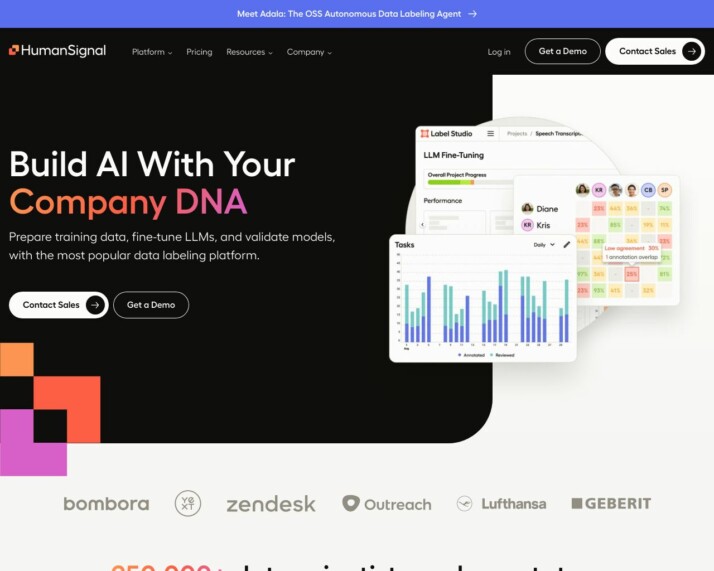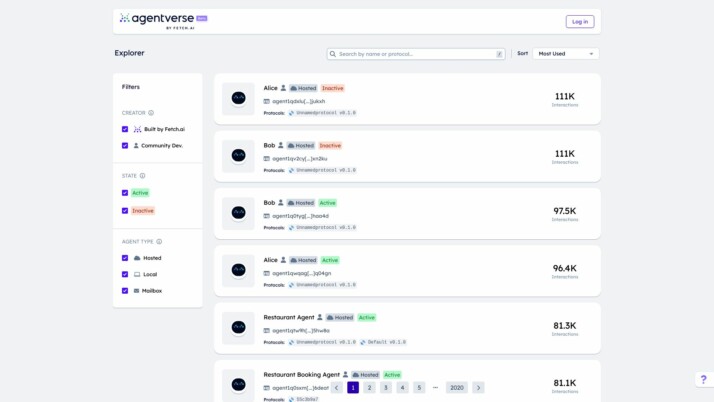Comparing Adala vs. AgentVerse: AI Agent Platforms
In an era where artificial intelligence is rapidly transforming industries, the demand for powerful yet accessible platforms to harness this technology has never been greater. As we delve into the intriguing realms of Adala vs. AgentVerse, and SmythOS, we uncover a diverse array of capabilities aimed at empowering developers, data scientists, and businesses alike to unlock the full potential of AI.
Whether you seek to create autonomous data labeling agents, foster an ecosystem of interoperable AI microservices, or leverage a comprehensive suite of cutting-edge features, this comparative analysis promises to shed light on the strengths and nuances of each platform, ultimately guiding you towards the solution that best aligns with your unique requirements.
Adala Overview
Adala is an open-source framework designed to create autonomous data labeling agents. These agents leverage large language models like GPT-3 to acquire specialized skills in tasks such as text classification, summarization, and question answering. Adala enables users to guide the training process by providing labeled datasets, allowing the agents to continuously improve through interactions with data and human feedback.


One of Adala’s key strengths lies in its modular architecture, which facilitates community contributions and extensibility. The framework aims to increase efficiency and reduce costs associated with data labeling while maintaining high quality through human guidance. With its novel approach, Adala provides a customizable environment for developing autonomous agents tailored for data labeling tasks, combining the power of AI with human input for reliable and adaptable results.
AgentVerse Overview
AgentVerse is an open-source platform enabling developers to create, host, and manage autonomous AI agents. These software agents can interact with users, data sources, and each other to perform a wide range of tasks.
AgentVerse provides tools and templates based on Python and the uAgents library to easily build AI agents that register themselves in a decentralized Almanac registry. Communication protocols facilitate standardized messaging between agents. Users can browse available agents supporting particular protocols and integrate agent services into conversational interfaces like the DeltaV app.


The platform’s vision is to catalyze an ecosystem of reusable, composable AI microservices through decentralized yet centrally-hosted autonomous agent collaboration. Key features include a visual agent builder, agent state persistence, usage analytics, and multi-agent messaging.
Feature Comparison
Adala and AgentVerse are both open-source platforms focused on building AI agents, but they differ in their core capabilities and intended use cases.
Adala specializes in creating autonomous data labeling agents. Its strength lies in leveraging large language models like GPT-3 to acquire specialized skills such as text classification, summarization, and question answering. Agents learn from labeled datasets provided by users, allowing them to continuously improve through interactions with data and human feedback.
The modular architecture of Adala encourages community contributions and extensibility.
On the other hand, AgentVerse is a broader platform for developing, hosting, and managing autonomous AI agents capable of performing a wide range of tasks beyond just data labeling. AgentVerse provides tools and templates for building agents that can interact with users, data sources, and each other. The platform supports features like a visual agent builder, agent state persistence, and multi-agent messaging.
While Adala is focused on the specific domain of data labeling and relies heavily on large language models like GPT-3, AgentVerse aims to facilitate an ecosystem of reusable, composable AI microservices through decentralized yet centrally-hosted autonomous agent collaboration. AgentVerse provides a more comprehensive set of tools for building and deploying agents, including a visual builder, debug tools, and support for scheduled agents.
| Adala | AgentVerse | SmythOS | |
|---|---|---|---|
| CORE FEATURES | |||
| Problem-Solving Capabilities | ✅ | ❌ | ✅ |
| Debug Tools | ❌ | ✅ | ✅ |
| Autonomous Agents | ❌ | ✅ | ✅ |
| Hosted Agents | ❌ | ✅ | ✅ |
| Work as Team | ❌ | ✅ | ✅ |
| SECURITY | |||
| Data Encryption | ❌ | ✅ | ✅ |
| COMPONENTS | |||
| Foundation AIs | ✅ | ❌ | ✅ |
| DEPLOYMENT OPTIONS | |||
| Deploy as Scheduled Agent | ❌ | ✅ | ✅ |
| DATA LAKE SUPPORT | |||
| TXT File Support | ✅ | ❌ | ✅ |
Conclusion
Adala and AgentVerse are open-source initiatives that push the boundaries of accessible AI agent development. However, SmythOS stands apart as a comprehensive and cutting-edge platform, poised to revolutionize the way individuals and businesses harness the power of AI.
With its intuitive drag-and-drop interface and extensive API integrations, SmythOS democratizes AI development, making it accessible to users across the technical spectrum. The ability to seamlessly integrate with a wide range of AI models, including OpenAI, Anthropic, and Hugging Face, sets SmythOS apart, enabling users to leverage the latest advancements in AI technology without being constrained by a single provider.
What truly distinguishes SmythOS is its versatility and scalability.
Whether you need to deploy agents as APIs, chatbots, scheduled tasks, or even as ChatGPT plugins, the platform offers unparalleled flexibility. Additionally, its robust security features, such as constrained alignment, data encryption, and OAuth support, ensure that your AI solutions operate within predefined boundaries, safeguarding your data and intellectual property.
As you explore the boundless possibilities of AI, we invite you to experience the power and simplicity of SmythOS. Unlock new realms of efficiency, automation, and innovation by creating a free Smyth account and discovering how our platform can transform your workflows. With SmythOS, the future of AI is within your reach.
Last updated:
Disclaimer: The information presented in this article is for general informational purposes only and is provided as is. While we strive to keep the content up-to-date and accurate, we make no representations or warranties of any kind, express or implied, about the completeness, accuracy, reliability, suitability, or availability of the information contained in this article.
Any reliance you place on such information is strictly at your own risk. We reserve the right to make additions, deletions, or modifications to the contents of this article at any time without prior notice.
In no event will we be liable for any loss or damage including without limitation, indirect or consequential loss or damage, or any loss or damage whatsoever arising from loss of data, profits, or any other loss not specified herein arising out of, or in connection with, the use of this article.
Despite our best efforts, this article may contain oversights, errors, or omissions. If you notice any inaccuracies or have concerns about the content, please report them through our content feedback form. Your input helps us maintain the quality and reliability of our information.
